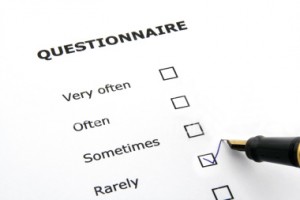What is depression and how is it treated? Depression is often confused with feeling blue. Normal sadness is from daily life situations, frustrations, and losses. Depression isn’t normal sadness. Depression is a prolonged, severe illness that disables a person.
Depression ranges from mild to severe. Mild depression may be helped by changing a person’s daily routines or going to therapy. You can still function at a fairly good level, and people may not even believe you’re depressed. SAD (Seasonal affective disorder) is a type of depression that follows the cycle of the year. SAD is predictable and is treated with Light Therapy.
Severe depression is an extreme, life threatening depression. It can lead to suicide. Severe depression is debilitating, can last for years, and if not treated can cause permanent disability. It’s profoundly painful and can’t be overcome without help. You can’t get over it, snap out of it, or get better by doing things.
Depression can be genetic, hereditary, or caused by life situations. Old people tend to be more depressed because of the life situations they suddenly face. Depression can also be a symptom of other medical illnesses, such as heart disease, cancer or other serious disease. Depression can be a side effect of medication or the result of mixing medications that interact poorly.
The most common ways to treat depression are:
- Medications
Anti-depressants are generally used to treat depression. Anti-depressants are easy to take. Doctors like to prescribe these drugs as quick fixes. It takes time for anti-depressants to be effective, anywhere from two to six weeks. Anti-depressants are useful in elevating serotonin levels in the brain. Anti-depressants don’t work the same for everyone, so it’s important you are monitored for any side-effects or possible worsening of symptoms. It may take a few trials to find the anti-depressant that works best for you. Try to be patient. Anti-depressants are big money for pharma companies. So there’s stigma and distrust about these drugs.
- Cognitive therapy
Cognitive therapy is a form of talk therapy. It helps you understand how your thoughts and beliefs affect your feelings, and how your feelings create your behaviour. It’s short term, focused psychotherapy. It’s action-orientated. Cognitive therapy helps you learn coping skills for how you feel and behave now, without worrying about the future. Research shows that cognitive therapy works best for dealing with mild to moderate depression. One drawback is finding a cognitive therapist in your area or within your financial means. In rural areas it’s almost impossible to find a cognitive therapist working in the community.
- Interpersonal therapy
Interpersonal therapy (IPT) is the newest form of psychological therapy. IPT focuses on the relationship problems associated with or affected by a depressed person. IN other words, it’s how you act with other people. IPT is based on the idea that strengthening a person’s social support systems increases his/her ability to cope. Being able to better cope helps reduce symptoms of depression. IPT is a short-term, limited focus treatment for depression. It’s good for treating young adults and children. Because IPT is so short (usually 12-16 treatments), personality issues aren’t addressed. This is also because IPT is a manual-based treatment, so the therapist strictly follows an approved, by the book method.
- Peer support
Peer support is the big group of social help networks that includes self-help groups, online depression chat rooms, web MDs, and self-help books. There are also regular drop-in peer support groups, which usually aren’t available in rural areas. The information you get from others with lived experience of depression can be very helpful in understanding where you are at in depression, what’s coming next, and how to deal with depression. Over the years peer support for depression has increased. Peer support is a great way to overcome stigma and openly talk about depression. It can be inexpensive, easy, and very helpful because of the emotional bonds you form with others.
Depression is an illness. It needs to be treated as such. The most common treatments of depression include anti-depressants, cognitive therapy, interpersonal therapy, and peer support. More and more we are breaking the stigma of depression.
* Click here to find out more about Terezia Farkas and her Depression help and click here to follow Terezia on Twitter.


